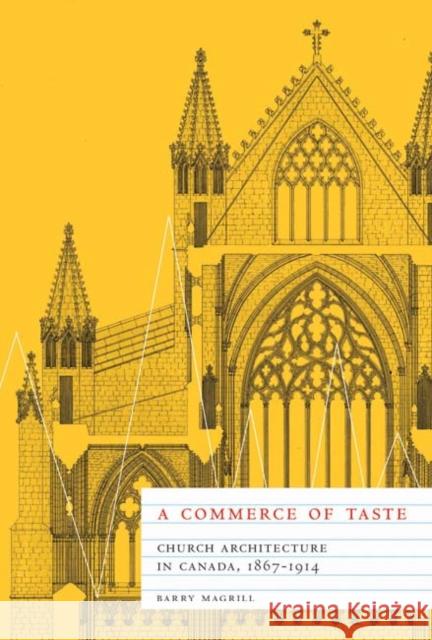A Commerce of Taste : Church Architecture in Canada, 1867-1914 » książka
A Commerce of Taste : Church Architecture in Canada, 1867-1914
ISBN-13: 9780773539839 / Angielski / Miękka / 2012 / 200 str.
In the late-nineteenth century the circulation of pattern books featuring medieval church architecture in England facilitated an unprecedented spread of Gothic revival churches in Canada. Engaging several themes around the spread of print culture, religion, and settlement, A Commerce of Taste details the business of church building. Drawing upon formal architectural analysis and cultural theory, Barry Magrill shows how pattern books offer a unique way of studying the relationships between taste, ideology, privilege, social change, and economics. Taste was a concept used to legitimize British - and to an extent Anglican - privilege, while other denominations resisted their aesthetic edicts. Pattern books eventually lost control of the exclusivity associated with taste as advances in printing technology and transatlantic shipping brought more books into the marketplace and readerships expanded beyond the professional classes. By the early twentieth century taste had become diluted, the architect had lost his heroic status, and architectural distinctions among denominations were less apparent. Drawing together the history of church building and the broader patterns of Canadian social and historical development, A Commerce of Taste presents an alternative perspective on the spread of religious monuments in Canada by looking squarely at pattern books as sources of social conflict around the issue of taste.











